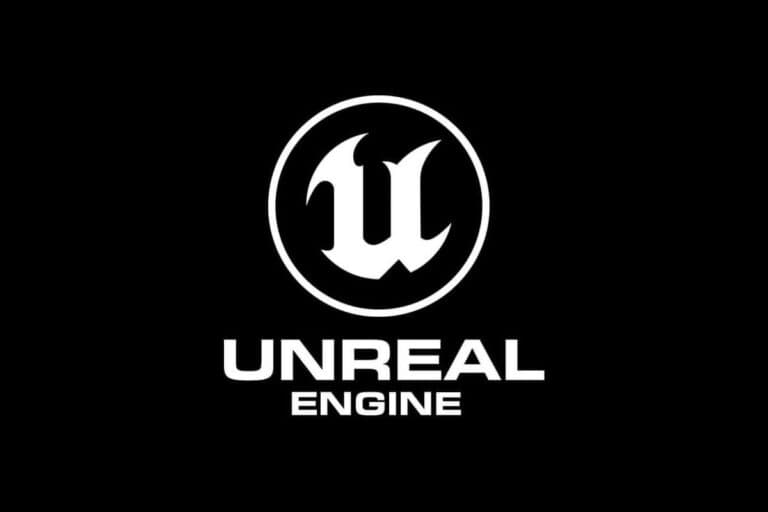
Creating a website that ranks well in search engines is essential for online success today. With so many platforms to choose from, finding the right website builder that supports good SEO practices can feel overwhelming. Choosing the right website builder can significantly impact your site’s visibility and help attract more visitors to your business.
When looking for the best website for SEO, you need to consider factors like mobile-friendliness, page speed, and built-in optimization tools. Many popular platforms now offer SEO features that were once only available through custom development. The right choice depends on your specific needs, technical skills, and business goals.
1: Search Engine Land
Search Engine Land is a must-visit website for anyone serious about SEO. This trusted industry resource provides up-to-date news, comprehensive guides, and expert insights about search engine optimization.
You’ll find valuable information on technical SEO topics like site architecture and how to build search engine-friendly websites. These resources help you understand the fundamental elements that make websites rank well.
One of the most helpful aspects of Search Engine Land is their coverage of free SEO tools. They highlight essential tools like Screaming Frog SEO Spider, Ahrefs Webmaster Tools, and Microsoft Clarity that can improve your optimization efforts without breaking your budget.
The site keeps you informed about emerging trends in the SEO landscape. For example, they recently covered the concept of “search everywhere optimization”, which expands optimization beyond Google to other platforms.
Search Engine Land also provides regular updates on industry changes through articles like their top SEO stories compilation, which covers important developments like Google’s algorithm updates and changes to search features.
You can use Search Engine Land as your go-to resource for staying current with SEO best practices, learning advanced techniques, and adapting to the ever-changing search landscape.
2: Moz
Moz stands out as one of the top websites for SEO tools that can help improve your website’s search engine ranking. Their platform offers both free and premium tools designed to enhance your SEO strategy.
When looking for SEO insights, you’ll find Moz’s Domain Authority metric particularly valuable. This scoring system helps you understand how well a website might rank on search engine results pages based on a comprehensive link analysis that models Google’s ranking system.
You can benefit from Moz’s keyword research tools to discover terms that will drive traffic to your site. Their Chrome extension also provides quick SEO insights as you browse the web.
For content creation, Moz recommends focusing on content-driven websites like blogs, news portals, or informational sites as they perform excellently for SEO purposes. These types of sites thrive by creating high-quality content that addresses user needs.
You can also learn from studying highly optimized websites. Moz users have suggested examining sites like Zappos.com to understand effective SEO implementation.
Different SEO professionals use Moz for various purposes. Some prefer it specifically for keyword research while using other tools like SEMrush for competitive analysis, so you should consider your particular needs when choosing SEO tools.
3: Content Marketing Institute
The Content Marketing Institute stands as a top resource for SEO-focused content strategies. Their website offers valuable insights that connect content marketing with search optimization techniques.
They emphasize that quality content and SEO work together. This pairing helps you create materials that are not only relevant but also well-researched and useful for your audience.
When planning your digital marketing strategy, you need specialized SEO approaches. The institute provides helpful tips and tools to navigate the ever-changing SEO landscape for content marketers.
Looking for specific tactics? They offer 21 quick-hit SEO tips that can help you manage your optimization efforts. You can select the ones that best align with your specific marketing goals.
Their practical advice extends to content structure as well. The institute shares five actionable tricks for structuring SEO-focused content. These strategies aim to improve your visibility, increase traffic, and boost your rankings in search results.
The Content Marketing Institute even showcases success stories. They highlighted Allstate’s blog as a Content Marketing Awards winner for its well-designed blog filled with useful content that balances quality writing with effective SEO.
4: Backlinko
Backlinko has become one of the most trusted resources for SEO knowledge and strategy in the digital marketing world. Founded by Brian Dean, this site offers in-depth guides and actionable advice that can transform your approach to search engine optimization.
When you’re looking for next-level SEO training and link building strategies, Backlinko should be on your radar. The site is particularly valuable for those who already have good content but aren’t seeing the search engine results they want.
What makes Backlinko stand out is its focus on practical, proven techniques. Their guides on how to improve your website’s SEO provide detailed examples and strategies you can implement right away.
Link building is a crucial aspect of SEO, and Backlinko excels in this area. Their guide on how to get high-quality backlinks outlines seven effective strategies, including becoming a source for reporters and creating “skyscraper” content.
Backlinko is also known for its data-driven approach. They’ve analyzed millions of Google search results to identify which factors truly correlate with first-page rankings, giving you insights based on real data rather than speculation.
You’ll appreciate the clean, easy-to-follow format of Backlinko’s content. Each article breaks down complex SEO concepts into manageable steps that you can actually use, whether you’re a beginner or an experienced marketer looking to refine your strategy.
5: Ahrefs
Ahrefs is one of the most powerful SEO tools you’ll find in the industry today. As of March 2025, it continues to be a favorite among SEO professionals and beginners alike. You’ll appreciate its comprehensive suite of features designed to boost your website’s search performance.
The platform offers several free SEO tools including a Keyword Generator and Backlink Checker that can help you get started without spending money. These free options are particularly helpful if you’re new to SEO or working with a limited budget.
When examining website rankings, Ahrefs provides valuable insights into top websites worldwide. You can see which sites receive the most traffic and study their strategies to improve your own approach.
The Ahrefs Webmaster Tools allow you to monitor your website’s SEO health efficiently. You can track who’s linking to your site and discover what keywords you’re currently ranking for on Google.
Many SEO professionals consider Ahrefs their favorite tool for comprehensive analysis. It excels in competitive research, allowing you to examine your competitors’ strategies in detail.
You’ll find Ahrefs particularly useful for keyword research, backlink analysis, and content exploration. The tool helps you identify valuable content opportunities that can drive more organic traffic to your website.
6: SEMrush
SEMrush stands as one of the most comprehensive SEO tools available today. You’ll find it packed with features designed to improve your website’s visibility and performance in search engines.
The platform offers powerful keyword research capabilities that help you discover what your audience is searching for. You can track your rankings for specific keywords and monitor how they change over time.
Competitor analysis is another strength of SEMrush. You can see which keywords your competitors rank for and identify opportunities to outperform them on search engine results pages.
SEMrush’s backlink analysis tools help you examine your link profile and find new link-building opportunities. This is crucial since backlinks remain a key ranking factor for most search engines.
According to recent data, SEMrush is among the industry standards for SEO professionals, alongside tools like Screaming Frog and Ahrefs. Many experts consider it essential for serious SEO work.
The tool provides detailed site audits that identify technical SEO issues on your website. These reports highlight problems that might be hurting your rankings and provide recommendations for fixing them.
SEMrush updates its database regularly, ensuring you have access to current information. Their monthly website traffic rankings can also help you understand broader market trends and competitive positioning.
While SEMrush requires a subscription, many users find the investment worthwhile for the insights it provides into their SEO performance.
7: Yoast SEO
Yoast SEO is one of the most popular SEO plugins for WordPress websites. With over a decade in the industry, it has established itself as a trusted tool for improving your site’s search engine performance.
When you install Yoast SEO, you get access to comprehensive features that help optimize your content. The plugin guides you through important SEO elements like meta descriptions, title tags, and keyword usage.
One of the best things about Yoast is its content analysis feature. It evaluates your writing and provides real-time feedback on readability and SEO strength. You’ll see color-coded indicators that show how well your content is optimized.
The free version offers plenty of value for beginners and small businesses. However, the Premium version gives you more tools like multiple keyword optimization and internal linking suggestions.
Yoast also handles technical SEO aspects automatically. It creates XML sitemaps and helps control how search engines interact with your site. This saves you from needing to understand complex technical details.
According to users on Reddit, Yoast won’t slow down your site performance. This is important since page speed is a significant ranking factor.
The company also provides excellent educational resources to help you learn SEO fundamentals. Their blog contains in-depth guides on keyword research, site structure, and other key topics.
8: Google Search Console
Google Search Console is one of the most powerful free tools for SEO that you should be using. It provides valuable insights directly from Google about how your website performs in search results.
With Search Console, you can see which keywords bring visitors to your site. This helps you understand what content is working well and what needs improvement.
You can monitor your site’s overall performance in Google search, including clicks, impressions, and average position. These metrics show you how visible your site is and how often people click through to your pages.
The tool also alerts you to critical issues that might be hurting your rankings. It helps identify crawl errors, mobile usability problems, and security issues that need fixing.
One useful feature is the URL inspection tool. You can check how Google sees specific pages on your site and request indexing for new or updated content.
The coverage report shows you which pages are indexed and which ones have problems. This makes it easier to spot technical SEO issues that might be holding your site back.
You can also submit and check your sitemap through Search Console. This helps Google find and index all your important pages.
The tool provides detailed insights into your website’s performance, making it easier to improve your SEO strategy. Many SEO professionals consider it essential for diagnosing problems and understanding search traffic.
9: Screaming Frog
Screaming Frog SEO Spider is a powerful website crawler that helps you improve your onsite SEO by identifying common issues. This desktop program is available for free to crawl up to 500 URLs, making it accessible for small website owners.
When you use Screaming Frog, you can quickly audit your website structure and find broken links, duplicate content, and redirect chains. The tool presents data in an organized way that makes technical SEO problems easy to spot.
The interface might seem complex at first, but it offers incredible depth for SEO analysis. You can customize your crawls to focus on specific aspects of your website that need attention.
Many SEO professionals consider Screaming Frog essential for website audits. It allows you to export data in various formats for further analysis or client reporting.
The tool helps you examine meta descriptions, title tags, and header tags across your entire site. You can also check for missing alt text on images and identify pages with low word counts.
Setting up the right configuration is important for effective audits. You can adjust crawl settings to match your specific needs rather than using default options.
Screaming Frog is made by actual SEO practitioners who understand what website owners need. This practical approach makes it remarkably effective for identifying technical issues that might be hurting your search rankings.
10: BuzzSumo
BuzzSumo is a powerful content research tool that can transform your SEO strategy. It helps you discover what content performs best for any topic or competitor. This insight is invaluable for creating content that resonates with your audience.
With BuzzSumo, you can track mentions of your brand across the web. This feature helps you monitor your online reputation and identify opportunities for backlinks.
The platform excels at showing you the most popular content for any keyword. You can filter results by date, content type, and social network to fine-tune your research.
Many SEO professionals wonder if the investment is worthwhile. While the monthly price of $79 may seem steep, the insights gained often justify the cost for serious content marketers.
BuzzSumo’s backlink analysis tool is particularly useful for SEO. It helps you identify who’s linking to your site and reveals new opportunities to improve your backlink profile.
The platform also offers keyword mapping capabilities. You can search for keywords and generate lists of related terms along with market insights.
You can use BuzzSumo to analyze your competitors’ content strategy. This analysis helps you understand what works in your industry and how to differentiate your approach.
The tool offers 18 different ways to improve your content and SEO strategy. From content discovery to competitor analysis, it provides comprehensive support for digital marketers.
Importance of SEO-Friendly Websites
Creating websites with SEO in mind has become crucial for online success in today’s digital landscape. A well-optimized site helps both search engines and users interact with your content effectively.
Impact on Search Rankings
SEO-friendly website design makes your site easier for search engines to crawl and understand. This improved accessibility directly influences how well your pages rank in search results.
When search engines can easily navigate your site structure, they index your content more effectively. This leads to better visibility when potential customers search for products or services you offer.
Technical elements like fast loading speeds, mobile responsiveness, and secure connections (HTTPS) all contribute to higher rankings. Search engines like Google specifically reward these features because they align with user preferences.
Key ranking factors include:
- Clean, logical URL structures
- Proper heading hierarchy (H1, H2, H3)
- Optimized images with alt text
- Internal linking that creates clear pathways
Websites that neglect these SEO principles often find themselves buried deep in search results, regardless of their content quality.
User Experience and SEO
User experience and SEO are deeply interconnected. SEO-friendly design not only helps search engines but significantly improves how visitors interact with your site.
When users find your site easy to navigate, they stay longer and engage more deeply with your content. Search engines track these engagement metrics and use them as signals to determine your site’s value.
Features that benefit both users and SEO include:
- Clear navigation menus
- Fast page loading times
- Mobile-friendly layouts
- Easy-to-read content
Lower bounce rates and higher time-on-page metrics send positive signals to search algorithms. This creates a beneficial cycle where improved user experience leads to better rankings, which brings more visitors.
Many businesses overlook how site design impacts both user experience and SEO. According to web developers on Reddit, balancing these elements requires thoughtful planning from the earliest stages of website development.
Key Features of SEO-Optimized Websites
A successful SEO strategy requires specific website features that search engines value. These features improve both user experience and visibility in search results.
Responsive Design
Having a mobile responsive website is no longer optional for good SEO. Google now uses mobile-first indexing, meaning it primarily looks at the mobile version of your site for ranking.
Responsive design ensures your website adapts to any screen size automatically. This prevents visitors from needing to zoom or scroll horizontally on smaller devices.
Key elements of responsive design include:
- Flexible images that resize appropriately
- Text that remains readable without zooming
- Adequate space between clickable elements
- Navigation menus that transform for mobile use
You can test your site’s mobile-friendliness using Google’s Mobile-Friendly Test tool. Making your site responsive not only improves rankings but also reduces bounce rates as visitors find your content easier to consume.
Fast Loading Speeds
Website speed directly impacts your search engine rankings and user experience. Sites that load quickly keep visitors engaged and reduce bounce rates.
The ideal page load time is under 3 seconds. Every additional second of loading time increases the likelihood of visitors leaving your site.
Speed optimization techniques include:
- Image compression – Reduce file sizes without sacrificing quality
- Minifying code – Remove unnecessary characters from HTML, CSS, and JavaScript
- Browser caching – Store commonly used files on visitors’ devices
- Content Delivery Networks (CDNs) – Serve content from servers closer to users
You can measure your current site speed using tools like Google PageSpeed Insights or GTmetrix. Improving loading times by even fractions of a second can significantly impact both rankings and conversion rates.
Frequently Asked Questions
Many SEO beginners and experts alike have common questions about the best tools, platforms, and resources. These answers will help you navigate the complex world of SEO and make informed decisions for your website.
What are the top-rated platforms for SEO enhancement?
The most highly rated platforms for SEO enhancement include Ahrefs and Moz. These tools offer comprehensive keyword research, backlink analysis, and site auditing capabilities.
Search Engine Land provides excellent resources for staying current with algorithm updates and industry best practices. Backlinko offers actionable strategies that can significantly improve your rankings.
The Content Marketing Institute also stands out for its focus on content-driven SEO strategies that drive organic traffic and conversions.
How does Wix compare with other website builders in terms of SEO capabilities?
Wix has improved its SEO features significantly in recent years. It now offers built-in tools for meta tags, structured data, and mobile optimization.
However, compared to WordPress with plugins like Yoast SEO, Wix still has limitations in customization. You cannot modify server responses or implement advanced technical SEO strategies as easily.
For basic websites and small businesses, Wix provides adequate SEO functionality. For more complex websites requiring extensive optimization, other platforms may offer greater flexibility.
What are the best free SEO tools available for optimizing a website?
Google Search Console tops the list of free SEO tools, providing valuable insights into your site’s search performance and indexing status.
Google Analytics offers essential traffic data to understand user behavior. Keyword Planner helps with researching targeted search terms without cost.
Other valuable free tools include Ubersuggest for keyword ideas, Screaming Frog’s free version for basic site audits, and PageSpeed Insights for performance optimization that impacts your rankings.
Which website builders are known to be the most effective for SEO?
WordPress consistently ranks as the most SEO-friendly website builder due to its flexibility and extensive plugin options like Yoast SEO and Rank Math.
Shopify performs well for e-commerce sites with built-in SEO features and clean code structure. Its automatic sitemap generation and customizable URLs benefit your search visibility.
Webflow offers excellent SEO capabilities for designers who want control over code while maintaining a visual interface. FAQ pages can significantly boost SEO rankings when implemented properly on these platforms.
Are there specific SEO advantages to using Google Analytics for website tracking?
Google Analytics provides direct integration with other Google tools, creating a cohesive ecosystem for SEO optimization. This connection helps you align your strategies with Google’s preferences.
The behavior flow reports help identify content gaps and opportunities to improve user experience, which directly impacts SEO. Bounce rate and session duration metrics inform content quality improvements.
Custom reporting in Analytics allows you to track SEO-specific KPIs that matter to your business goals, rather than just focusing on rankings alone.
What resources are recommended for beginners eager to learn SEO techniques?
Moz’s Beginner’s Guide to SEO offers comprehensive yet accessible information for newcomers. The step-by-step format makes complex concepts easier to understand.
Backlinko’s blog provides actionable strategies with clear examples that you can implement immediately. Brian Dean’s writing style breaks down advanced techniques into manageable pieces.
SEO communities like Reddit’s r/SEO and the Moz Q&A forum allow you to ask specific questions and learn from experienced professionals. These interactive resources complement more structured learning paths.




